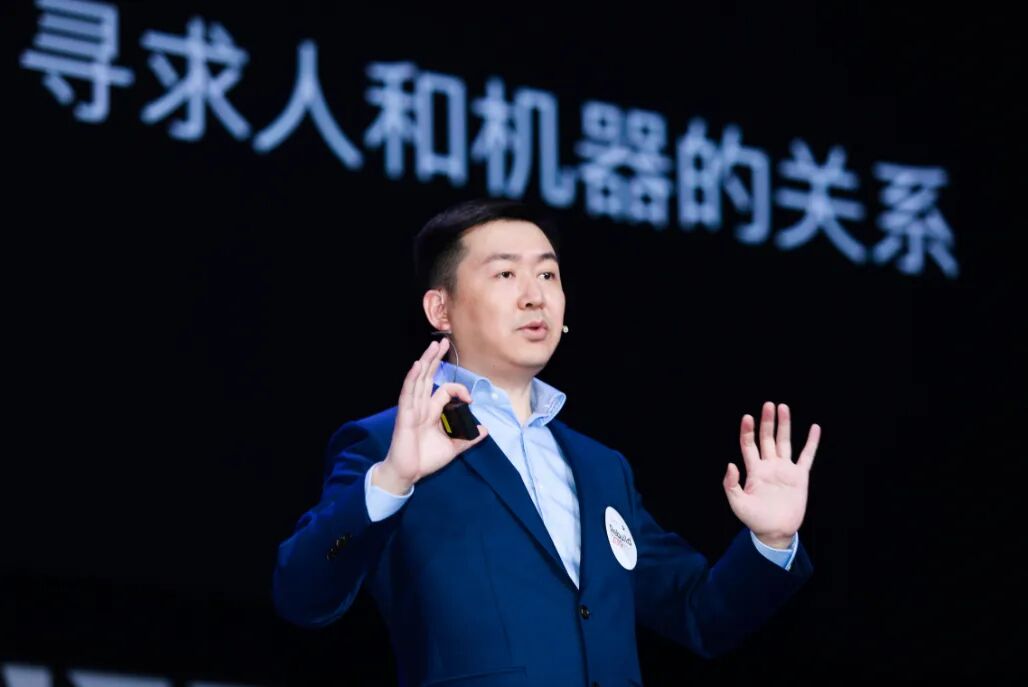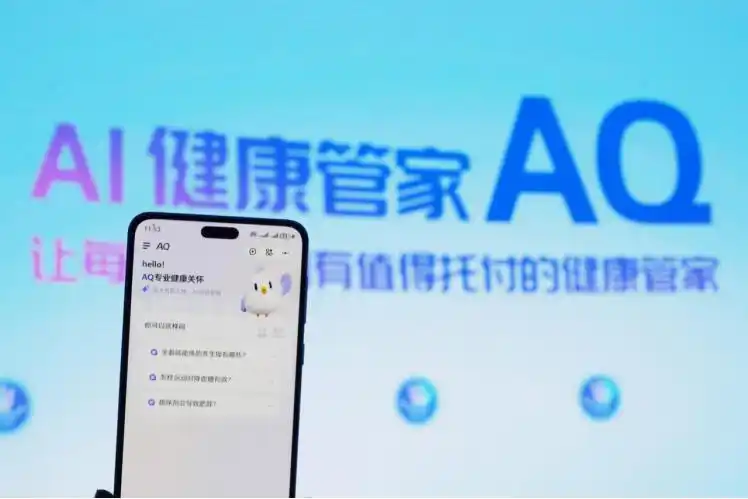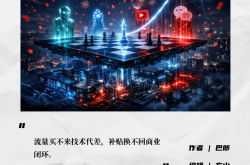Is Ant Group About to Turn Wang Xiaochuan's 'AI Doctor Dream' into Reality?
![]() 11/12 2025
11/12 2025
![]() 544
544

Text by Tang Chen, Images sourced from the Internet
AI healthcare is not a new business endeavor, but it certainly occupies a highly attractive and promising domain (where "track" or "shuài dào" implies a field with immense potential).
A report from the World Economic Forum indicates that artificial intelligence is set to be a major transformative force in healthcare. Projections suggest that from 2024 to 2032, the AI healthcare market will experience an annual growth rate of 43%, with the market size expected to soar to $491 billion.
There are reports indicating that OpenAI's latest project, cderGPT, is also venturing into this field—with the rapid advancement of large models making it feasible to "create doctors for humanity."
Among those at the forefront of developing "AI doctors," Wang Xiaochuan and his Baichuan Intelligence stand out as the most ambitious.
For instance, in April of this year, Wang Xiaochuan declared in an internal memo to all staff: "Building models for life and creating doctors for humanity is Baichuan's mission. This is the vision we established from the very beginning."
Just prior to this memo being circulated in early March, Baichuan Intelligence laid off staff from its ToB projects in finance and education, which had previously been key pillars of its commercialization efforts. The stated reason was to concentrate resources on healthcare, its core business.
In reality, Baichuan Intelligence's AI healthcare business, much like many of its consumer-facing projects, was initially a peripheral effort within the company. However, due to setbacks in the development of its foundational models, Wang Xiaochuan needed a fresh narrative to present to capital markets to secure funding and remain competitive.
It can also be argued that after over a year of intense competition in large models, healthcare has become Baichuan Intelligence's last hope for weathering the storm.
In various interviews, Wang Xiaochuan has attempted to articulate his business rationale to the outside world. He stated that shifting focus to healthcare does not conflict with the goal of achieving AGI (Artificial General Intelligence): healthcare is not a vertical niche; creating doctors is tantamount to achieving AGI.
However, given the current turmoil at Baichuan Intelligence and the challenges in closing the loop on its commercial path in AI healthcare, Wang Xiaochuan may find it difficult to realize his "AI doctor dream."
On one hand, as an AI startup, Baichuan Intelligence has witnessed frequent adjustments in its team and business direction since late 2024. For example, the departure of several co-founders has left Wang Xiaochuan lacking the confidence to "achieve miracles through strength."
On the other hand, the implementation of Baichuan Intelligence's AI healthcare business still follows the traditional informatization path (where "informatization" or "xìn xī huà" refers to the integration of information technology into various sectors). It is challenging to break free from conventional government and enterprise business models, rapidly standardize, and penetrate the core areas of hospitals. Instead, it can only compete with peers by offering customized services, vying for data, and focusing on renewal fees.
This is determined by the current state of AI infrastructure in healthcare systems, process compliance, data security, and the cooperation of medical staff.
Although Baichuan Intelligence holds an early advantage in models and technology, it lacks closed-loop validation in real healthcare scenarios, and its foundation remains insufficiently robust. After DeepSeek expanded the open-source route, the gap in model capabilities became less pronounced, and the true test lies in the ability to implement AI scenarios and the systemic capability of the commercial ecosystem.
There is an industry consensus that the future leader in AI healthcare will necessarily possess ecological integration capabilities and be a versatile player capable of achieving inclusive allocation of healthcare resources.
This is where Wang Xiaochuan falls short. Baichuan Intelligence struggles to compete with giant players like Huawei, ByteDance, Ant Group, JD.com, and Meituan.

Image Source: Ant AQ, Internet
In contrast, Ant Group (hereinafter referred to as "Ant") appears to have found a viable path, realizing Wang Xiaochuan's vision.
Ant's approach to AI healthcare is clear: it aims to penetrate more healthcare scenarios and meet demand through AI services, relying on a triangular framework of "payment + healthcare + AI technology" to form a three-dimensional service system encompassing "medical institutions—doctors—patients."
Through this approach, Ant has also redefined its role in the AI healthcare sector: transitioning from a "connector" within the healthcare system to an active "participant" with service capabilities.
It is also validating a commercial value proposition: in addition to expanding into the B2B healthcare market, Ant is driving the transformation of Alipay from a "single payment" function to a multifaceted consumption scenario encompassing "medical insurance + commercial insurance + personal health accounts," leaving room for the commercialization of more AI healthcare products.
From a business perspective, in a vertical field like healthcare, technology serves as an entry ticket, while scenarios act as the moat. Take AQ as an example: this AI application became China's fifth AI-native app to surpass 10 million monthly active users just four months after its launch.
The core reason for its rapid growth is not the superiority of its model but the complete business ecosystem provided by Ant:
Users access healthcare services through Alipay, such as consultations and insurance purchases.
After medical visits, Ant's "medical insurance + commercial insurance" clearing and settlement center automatically calculates the proportion borne by each party, enabling instant settlement.
AQ's report interpretation results can be linked to insurance underwriting or health management plans.
Users can also "purchase medications online" through AQ.
Within Ant Health's business ecosystem, AQ presents a new prototype for patient care pathways: patients with health concerns first consult AQ, which provides answers. Minor issues are resolved directly through AQ.
For more serious problems, AQ handles triage and referral. Patients undergo offline examinations and diagnoses, then return to AQ for subsequent health management.
This "embedded AI" strategy allows it to bypass the challenge of building trust from scratch. Users do not adopt AQ because they believe in AI but because they are already using Alipay for health matters, give it a try, find it useful, and continue using it.
More critically, Ant has packaged these capabilities and sold them to B2B clients, forming a commercial closed loop and clearly articulating the story of AI healthcare.
Ant has been laying the groundwork in the health services sector for over a decade. The imaginative potential brought by AI has led it to place significant bets on AI-driven health services.
On November 7, 2025, Han Xinyi, CEO of Ant Group, issued a company-wide memo announcing an organizational restructuring: the former "Digital Medical Health Business Unit" was officially upgraded to the Health Business Group, becoming one of the five core business segments alongside Alipay Business Group, Digital Payments Business Group, Wealth and Insurance Business Group, and Credit Business Group.
This key strategic move by the new CEO, Han Xinyi, sends a clear signal: AI health services have transitioned from an innovative project at Ant to a growth driver for the next decade.
As for how far it can go, it depends on whether Ant can find that delicate balance between scale, responsibility, and sustainability.
Currently, what Ant can prove is that the value of AI in healthcare lies not in the size of its parameters but in its ability to integrate into real life and solve specific problems.
For Wang Xiaochuan and Baichuan Intelligence, who have barely managed to stay in the game, the inability to self-validate this point is undoubtedly a significant regret.






